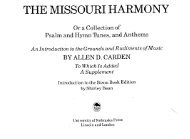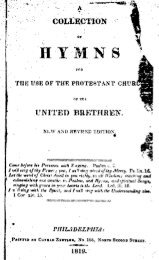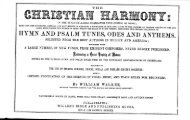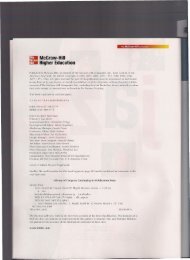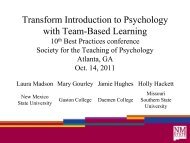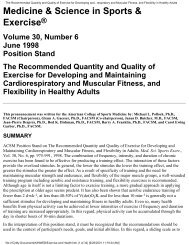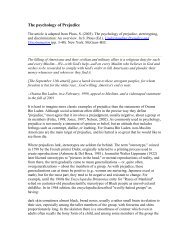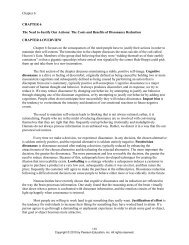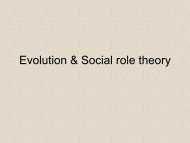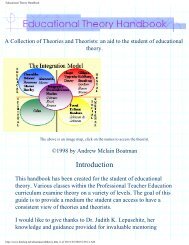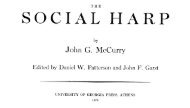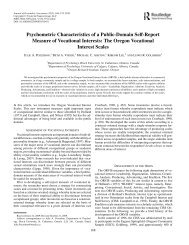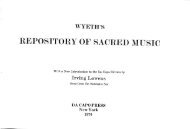Attitudes and Attitude Change CHAPTER 7 Attitudes and Attitude ...
Attitudes and Attitude Change CHAPTER 7 Attitudes and Attitude ...
Attitudes and Attitude Change CHAPTER 7 Attitudes and Attitude ...
Create successful ePaper yourself
Turn your PDF publications into a flip-book with our unique Google optimized e-Paper software.
11. <strong><strong>Attitude</strong>s</strong> changed by the central route to persuasion are:<br />
a) maintained over time.<br />
b) consistent with behaviors.<br />
c) resistant to counterpersuasion.<br />
d) all the above.<br />
178<br />
Copyright © 2010 by Pearson Education, inc. All rights reserved.<br />
<strong><strong>Attitude</strong>s</strong> <strong>and</strong> <strong>Attitude</strong> <strong>Change</strong><br />
12. Shavitt (1990) presented participants with cognitively or affectively oriented ads for products<br />
about which people had either cognitively or affectively based attitudes. Results indicated that<br />
participants were most influenced by:<br />
a) cognitively based ads.<br />
b) affectively based ads.<br />
c) ads that “matched” the type of attitude they had.<br />
d) cognitively based ads that were self-relevant <strong>and</strong> affectively based ads that were not<br />
relevant.<br />
13. When you encounter an object <strong>and</strong> your attitude toward that object comes immediately to mind,<br />
your attitude is said to be highly:<br />
a) resistant.<br />
b) accessible.<br />
c) deliberative.<br />
d) intentional.<br />
14. After strongly prohibiting the reading of banned books, Professor Jones has noticed an increased<br />
interest by her students in the books. Which of the following theories best explains this outcome?<br />
a) theory of reasoned action<br />
b) elaboration likelihood model<br />
c) reactance theory<br />
d) classical conditioning theory<br />
15. Responses to which of the following questions will best predict whether someone donates clothes<br />
to the Salvation Army next Sunday at noon?<br />
a) “How much are you willing to help others?”<br />
b) “How do you feel about making donations to charities?”<br />
c) “How do you feel about donating clothes to the Salvation Army?”<br />
d) “How do you feel about donating clothes to the Salvation Army next Sunday<br />
at noon?”<br />
16. Rudman <strong>and</strong> colleagues (2007) found evidence that implicit attitudes are rooted more in people's<br />
_____ experiences whereas explicit attitudes are rooted more in their _____ experiences.<br />
a) pleasant; unpleasant<br />
b) unpleasant; pleasant<br />
c) childhood; recent<br />
d) recent; childhood<br />
17. An attitude change theory that states that we can satisfy our need to justify engaging in attitudediscrepant<br />
behaviors by changing our attitudes is:<br />
a) self-evaluation maintenance theory.<br />
b) cognitive dissonance theory.<br />
c) elaboration likelihood theory.<br />
d) self-affirmation theory.



